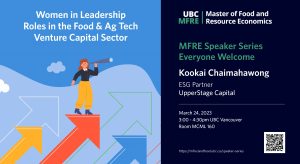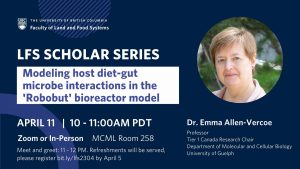We have a job posting for a Work Learn International Undergraduate Research Award, “WLIURA S23 Urban Rewilding Field Research Assistant”. The posting can be found on UBC Careers Online at this embedded link. Applications close this Sunday, March 26th.
See posting details below.
Experiential Learning Form – Job Information
Pronoun Usage in Job Description
Position Type: UBC Vancouver Work Learn International Undergraduate Research Awards Program
Award Term: Summer 2023
ID: 964113
UBC Faculty/VP: Faculty of Science
UBC Department Name: Institute for Resources, Environment and Sustainability
Job Title: WLIURA S23 Urban Rewilding Field Research Assistant
Title of Research Project: Toward biodiverse cities: uncovering the indirect effects of food waste on urban bird diversity
Outline of Research Project
Though largely unrecognized, urbanization is now a leading cause of biodiversity loss, including through the mortality and extinction of birds. At present, the majority of cities host abundant populations of generalist birds (e.g., crows, gulls, pigeons), but urban growth is associated with the decline of specialist species, leading to simpler, homogenous bird communities. With the loss of specialist birds, we also lose the benefits they provide to people, like improved mental wellbeing and connection to nature, pollination, and pest control.
Though many of the direct causes of the loss of urban biodiversity are clear (e.g., the destruction and fragmentation of green space), indirect effects and interactions (the impact of one entity on another that is mediated or transmitted by a third) likely play a large role and are understudied in cities. Therefore, while urban decision-makers increasingly want to plan for biodiversity, key information about indirect effects on biodiversity do not yet exist to help direct their policies, plans, and implementation. This research project will investigate the relationships between human food subsidies (e.g., food waste in garbage, direct feeding) and bird diversity in Vancouver, BC. We hypothesize that food waste may disproportionately contribute to the loss of bird diversity by supporting generalist scavengers species, like American crows, which also eat specialist songbirds’ eggs and nestlings, limiting songbird populations or preventing their establishment in cities. We therefore seek to address the question “how does food waste availability, after controlling for other environmental drivers, affect crow populations and the abundance and diversity of specialist urban birds?” This study will help to illuminate the ways that people may unknowingly and indirectly undermine urban bird diversity, so that we might identify and recommend interventions to reverse this trend.
To support this research, the international work learn student will assist with fieldwork to validate and expand an existing dataset of bird occurrence and microhabitat in Vancouver, BC. Those data were collected by CHANS Lab affiliate, Dr. Harold Eyster, in 2020. Specifically, we will collect data to validate that patterns of bird occurrence did not sufficiently change between 2020 and the present, as well as collect data on food waste availability to birds. The validation step will enable us to relate food waste abundance data from the present with a large dataset of bird observations and microhabitat from 2020. All of the aforementioned data will serve as input for statistical models that test the strength of the relationships among food waste and other environmental variables, bird diversity, and crow and other species abundance.
Student Responsibilities
The student(s) will have two key duties: 1) bird surveys on transects throughout several Vancouver neighborhoods and 2) surveys for food waste availability throughout the same transects. Bird surveys will involve walking and observing birds along 14 transects throughout Vancouver, BC, targeting a set of focal species (e.g., American crow, glaucous-winged gull, American robin, northern flicker, white-crowned sparrow), recording species name, abundance, and some information about their location and behavior (e.g., was the bird observed feeding directly on food litter, in a trash bin, etc.?). Food waste surveys will involve documenting all waste receptacles (garbage bins, green bins, dumpsters, etc.) within the 14 urban transects, in addition to recording information about the receptacles’ state (open, closed, empty, full) and contents. The student will alternate these responsibilities with the researcher/PhD Student, Daniel Forrest. The student will also have the opportunity to enter and clean data in spreadsheets (e.g., Google Sheets, Microsoft Excel, etc.). The student will be supervised by Daniel Forrest and Dr. Kai Chan. Daniel will train the student to conduct field surveys through direct, in-person instruction, accompanying the student on most (if not, all) surveys. The student will have frequent check-ins with Daniel and periodic group check-ins with Daniel and Kai.
An enthusiastic, ambitious, and hard-working student would likely have the opportunity to gain data analysis skills, including computer programming (R and/or Python), GIS (QGIS or ArcGIS), and statistics, after completion of data collection. Additionally, the student has the possibility to gain experience in scientific writing and co-authorship in future peer-reviewed papers that result from this work.
Skills Gained
Project Coordination (e.g. planning/multi-tasking), Teamwork (e.g. interpersonal skills), Adaptability (e.g. openness to change), Organization (e.g. time management), Initiative and Motivation (e.g. ownership of work), Analysis and Problem Solving (e.g. critical thinking), Research Skills (e.g. data collection/analysis)
Do you already have a candidate(s) identified for this job? No
Work Setting On-site (elsewhere, please specify)
On-site (elsewhere, please specify): Transects throughout Vancouver, BC.
Number of Openings 1
Qualifications (WL IURA)
Required:
1. Strong communication and interpersonal skills
2. Organization, punctuality, and reliability
3. Ability to work outside in a variety of weather conditions
4. Willingness to learn and be challenged
5. Keen sense of observation and curiosity
6. Passion for biodiversity conservation, urban ecosystems, and their contributions to human wellbeing and equity
7. Interest in complex human-nature interactions
Preferred:
1. Pursuit of a degree in ecology, biology, conservation, sustainability, environmental science, environment studies, or related field
2. Experience using binoculars and observing wildlife
3. Experience using field guides and species identification keys
4. Familiarity with birds of Vancouver and/or the Pacific Northwest
5. Understanding of fundamental ecological concepts (e.g., food webs, competition, predation, ecological niche, species interactions)
Hours Per Week: 35
Preferred Degrees/Disciplines: Science/Environment/Agriculture
Supervisor: Daniel L. Forrest
Supervisor Email: daniel.forrest@ubc.ca
Additional Supervisors: Dr. Kai Chan
Additional Supervisor Email: kaichan@ires.ubc.ca
Work Learn/ Work Learn International Undergraduate Research Awards Administrator
Kendra Yu
Work Learn/ Work Learn International Undergraduate Research Awards Administrator Email
kendra.yu@ires.ubc.ca
Posting Date
March 13, 2023
Expiration Date
March 26, 2023
Application Procedures
Desired Skills
Excellent interpersonal skill and strong communication skills
Bird identification
Observation
Enthusiasm to learn and be challenged
Passion for biodiversity conservation, urban ecosystems, and their contributions to human wellbeing and equity
Inclement/Adverse Weather Conditions
Organization experience with species identification
Ecology
Restoration Ecology
Resume Receipt
E-mail me and save to my CareersOnline account
Email address for resumes and other documents
daniel.forrest@ubc.ca
Additional Documents Requested.
Cover Letter
*****************************************************************
Best,
Daniel L Forrest (He/Him)
Graduate Research Assistant
Institute for Resources, Environment, and Sustainability
The University of British Columbia | Traditional, Ancestral & Unceded Territory of the xʷməθkʷəy̓əm (Musqueam) First Nation
AERL Building 429-2202 Main Mall | Vancouver BC | V6T 1Z4 Canada
Phone 778 917 6641
danlf@student.ubc.ca | @DL_Forrest

